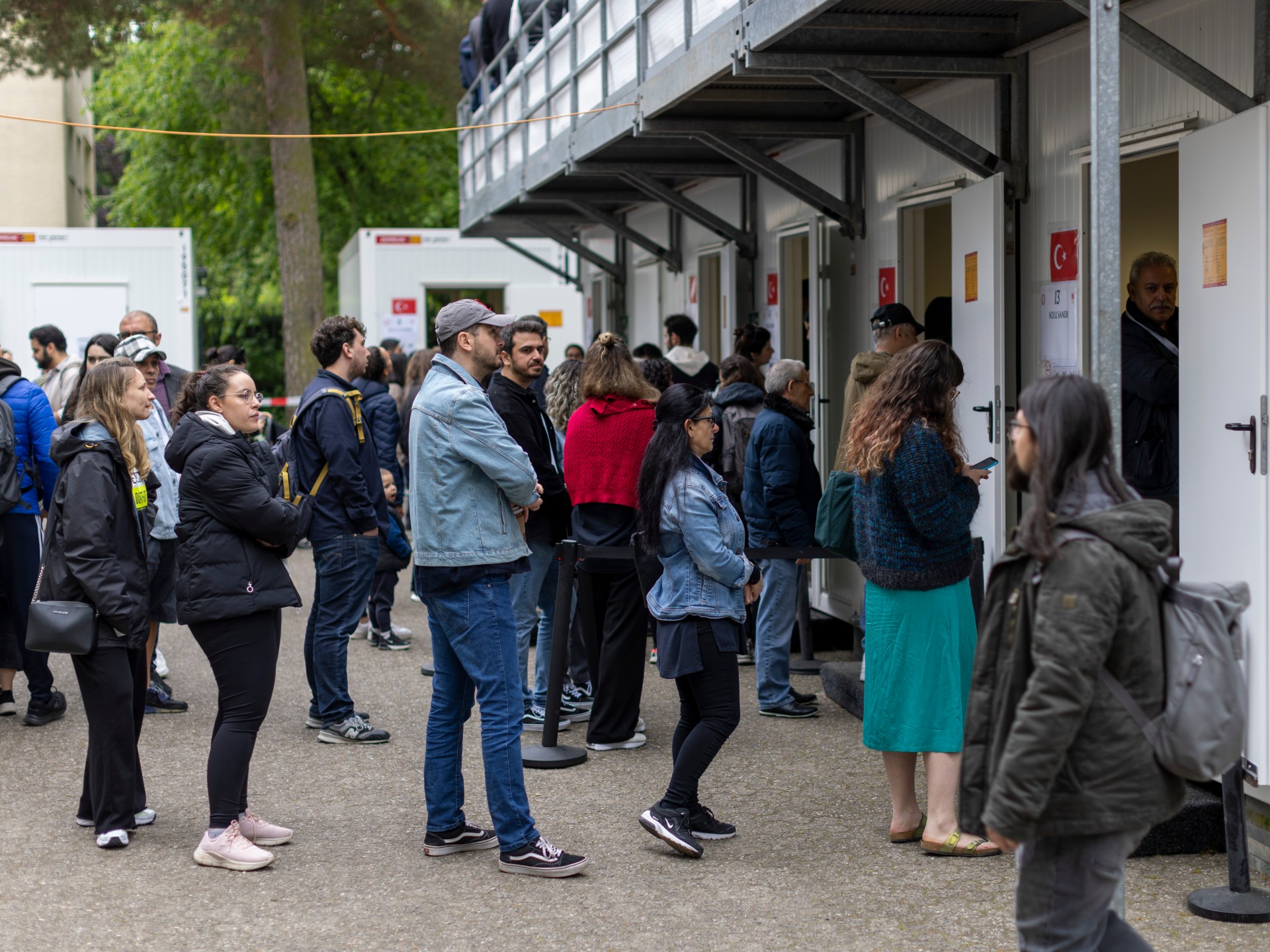700,<> Turkish expatriates voted in the second round of presidential elections that began yesterday abroad, amid sharp polarization of the votes of the Turkish community in Germany.
The Turkish High Presidential Election Commission said in a statement that the number of expatriate Turks abroad and at border crossings exceeded 700,<> votes until midday of the second day of the opening of the polls for the second round of the presidential elections.
The voting of expatriate Turks in 156 diplomatic missions - distributed over 75 countries - will continue until the evening of 24 of this month, knowing that the second round of presidential elections inside Turkey will be held on May 28.
A number of observers indicate that the level of citizen turnout abroad is witnessing a significant increase.
The Supreme Election Council announced that expatriate votes will be counted on the 28th of this month along with the votes of the interior.
Dominance and mobilization
Germany is witnessing a sharp polarization of the votes of the Turkish community during the campaigns for the presidential elections in Turkey.
Given the size and influence of the Turkish diaspora in Germany, the Turkish opposition has sought to win over voters in an attempt to achieve a breakthrough that would break the AKP's dominance.
The Turkish community in Germany has a population of about 3.5 million, the number of those eligible to vote is about 1.5 million people, and the state of North Rhine is a center of gravity for Turks with about 934,<> people.
Supporters of Turkish President Recep Tayyip Erdogan want to preserve Cologne as a stronghold of the Turkish government's program.
In Düsseldof, the industrial and economic capital of Central Europe, the Turks are a force to be reckoned with, representing the city's largest foreign concentration.
In Berlin, as in Duisburg and other German cities, the picture is different, with the opposition mobilizing heavily among the Turkish community.
The polarization between Berlin and Ankara over the Turkish community is no longer hidden, and the German authorities fear what they call the AKP government's infiltration of the Turkish community.

